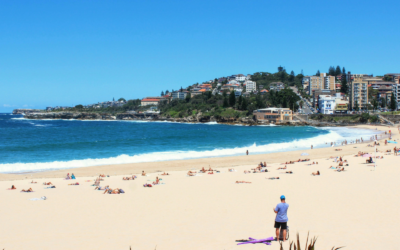We all want to save the planet, right? But sometimes it just seems so difficult. The problems are so big that we don’t even know where to start. Well here are seven simple things we can all do today, and they won’t break the bank or involve lying down in front of bulldozers.
Take your own food containers
Some take-away food outlets offer a small discount if you take your own container. It’s time to start thinking beyond ‘keep the cup’ or taking other reusable containers.
Here’s a video of how office workers can do this – and with a little imagination the same principles can also apply to students – especially if we take reusable plastic containers from home.
Most wholefood stores also give a discount if you take your own container. So re-using glass bottles, plastic tubs and other containers could also make healthy eating more affordable.
Chop and freeze fresh produce
Do you buy fresh fruit and vegetables and don’t eat them all before they go off? This creates unnecessary food waste that either ends up in your compost (which is a good option) or in landfill.
Lots of fresh fruit and vegetables can be easily frozen and used later – for example, pumpkin, potato, sweet potato, onions, leeks, bananas and berries all freeze and defrost well. When you buy them, just cut what you want to eat in the next day or two – then wash, chop and freeze the rest!
Of course, some things don’t freeze well – like lettuce, cucumber, zucchini and tomatoes.
You’ll also thank yourself later when you don’t have time or energy to go shopping and you remember there are lots of great ingredients in your freezer to cook a delicious meal.
Use a seven dollar hottie
We’re not talking about your next Tinder date! A hot water bottle from most department stores will cost approximately seven dollars and could save hundreds in winter heating costs – not to mention the environmental savings.
A hot water bottle can keep your feet warm all night. And once your feet are warm, your whole body will generally heat up. Combined with a cozy blanket and a jumper, a hot water bottle can keep you warm on the couch too and really reduce your environmental impact.
When your hottie cools down, use the water to soak your dishes or water your plants. Then refill with hot water when you’re ready for another eight hours of warmth.
Go for a walk or jog to keep warm
Exercise doesn’t just make you look hotter but also makes you feel hotter! Physical activity raises your core body temperature and can keep you feeling warmer for hours. It can also make you feel happier and healthier.
When you go walking or jogging, you can also pick up litter as you go. Bending to pick up rubbish will work another set of muscles and you’ll be helping to keep plastic and other rubbish out of the oceans. Of course, it’s important to be careful how you bend, and don’t do this if you have a bad back.
Air dry your clothes
Electric clothes dryers may seem convenient but they’re extremely energy-hungry and expensive to run. It’s much better and healthier to dry your clothes on a rack on the balcony or in the yard as much as possible.
Direct sunshine also kills bacteria on clothes and makes them cleaner. On cloudy days they may not be completely dry after hanging out in the air, so you might need to throw them in the dryer for 20 minutes or so. This is much more energy efficient than throwing them straight from the washing machine into the dryer.
Don’t buy fast fashion
Most of us are struggling to live on very tight budgets. Fast fashion might be tempting because it’s cheap. However it doesn’t last long, so it can be more expensive in the long-run, both for our wallets and for the environment. Try to buy better quality clothing or second hand clothing. You’ll be doing yourself and our planet a favour.
Let it mellow
Yep, we’re ending in the toilet. Coz we really don’t want our whole planet ending up there!
Have you thought about how many times each day you flush the toilet? And what else that water could be used for? Like drinking, growing food and keeping our rivers alive.
Obviously we need to flush every time we use a toilet in public places. But at home, would it hurt to just let the yellow stuff sit and mellow sometimes? And flush a little less often?
Authors: Lois MacCullagh and Divya Bhusal



